I need to know. speed to rpm relation of Rotator part. hence i made this.
this is the data i got at various speed
10% =0.45, 20%=1.8, 30%=4.05, 40%=7.2, 50%=11.25, 60%=16.2,70%=22.05, 80%=28.8,90%=36.45, 100%=45 (all in rpm)
so its not linear, what factor determines change in rpm at respective speed.
4 Comments
- Log in to leave a comment
-
107 Asqr153.9 years ago
@SmurfResearchX thanks for your intrest in my post. Electric motor torque and static resistance is set to zero..
I found out while designing retractable wheel. Where 3 rotators are interconnected in triangle formation each having diferent maximum angle . Hence I need to match speed of 3 rotators to open and close at same time period.
-
107 Asqr153.9 years ago
@SmurfResearchX
Motor torque is absolute zero., I tested the speed of "Rotator" part (connected to motor) at various speed level. To measure it's rotator speed in the game I used electric motor since it has "rpm" parameter in its part properties.
Hence motor and rotator shaft are connected. Motor gives exact rpm of rotator.Rotator rotates at 45 rpm at its 100% speed. But 11.25 rpm in its 50% speed.
-
7,853 SmurfResearchX4.0 years ago
hmmm, that is interesting - i noticed the size and mass of the blades affects the rpm alot...but never tried without them - different "motor torque" settings probably change the results too - what was the torque setting for the test?

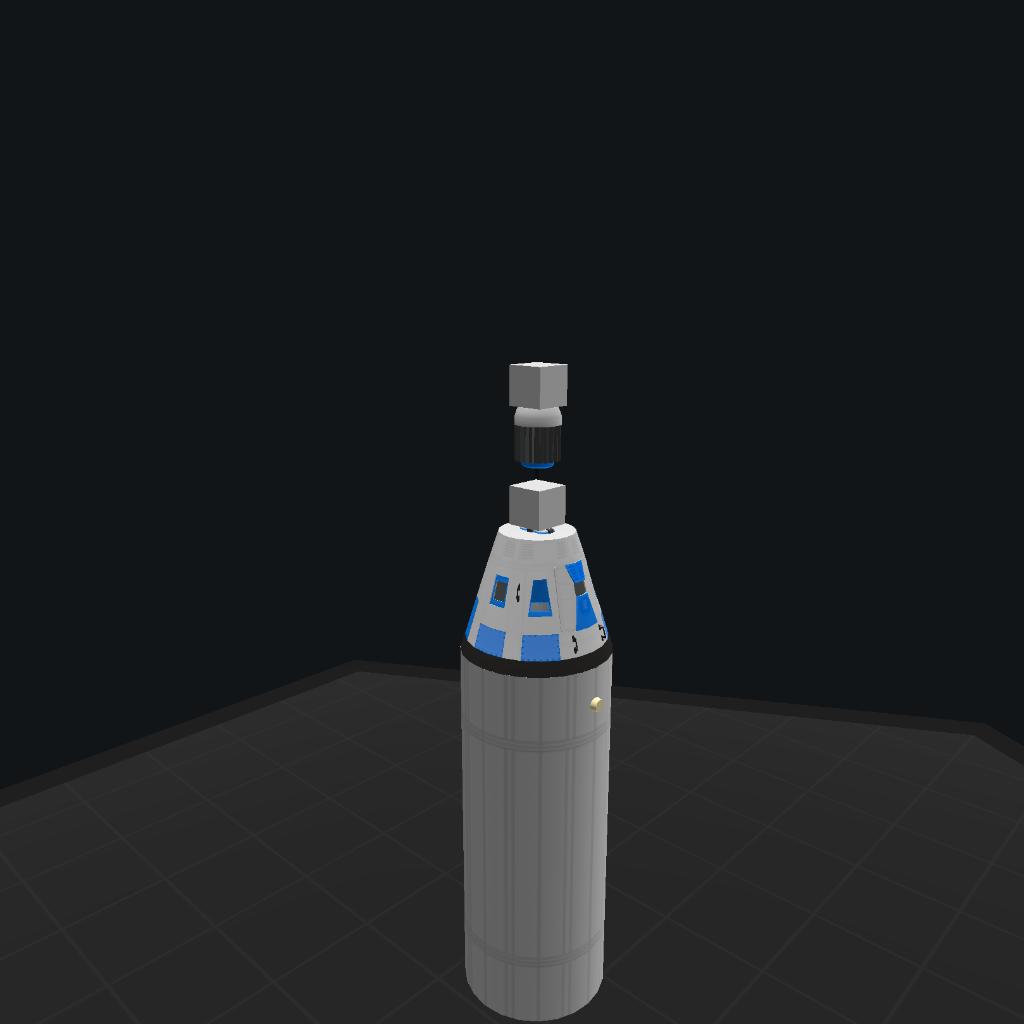
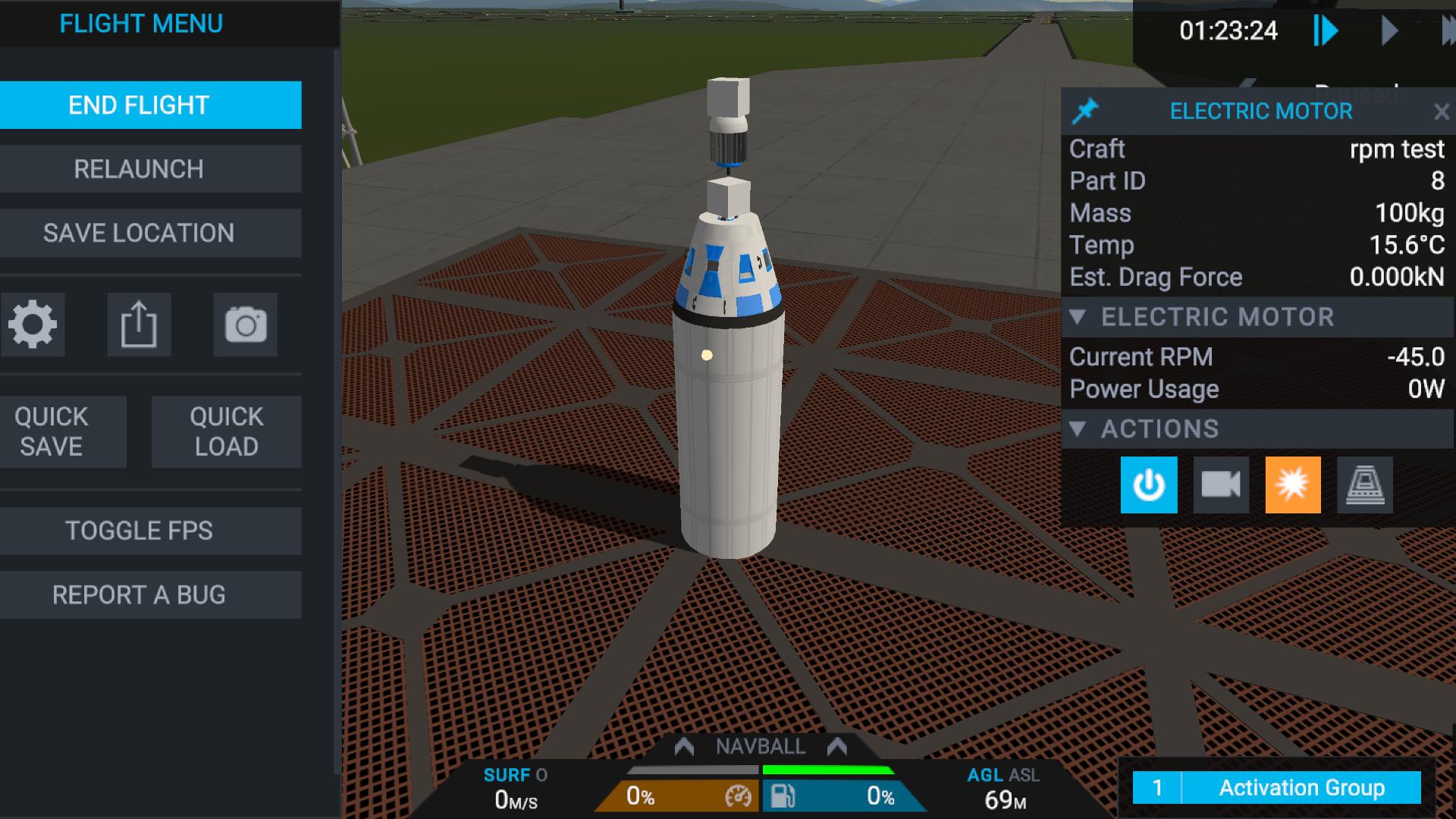
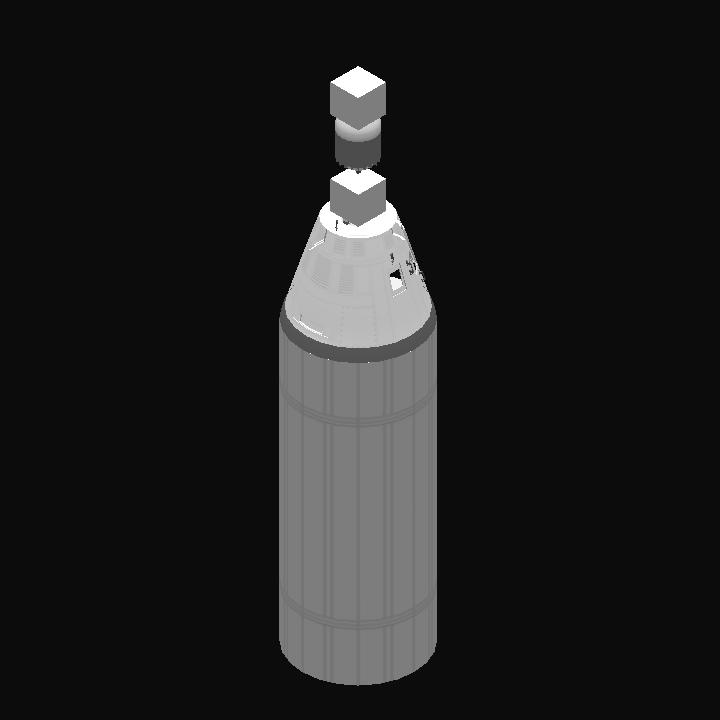
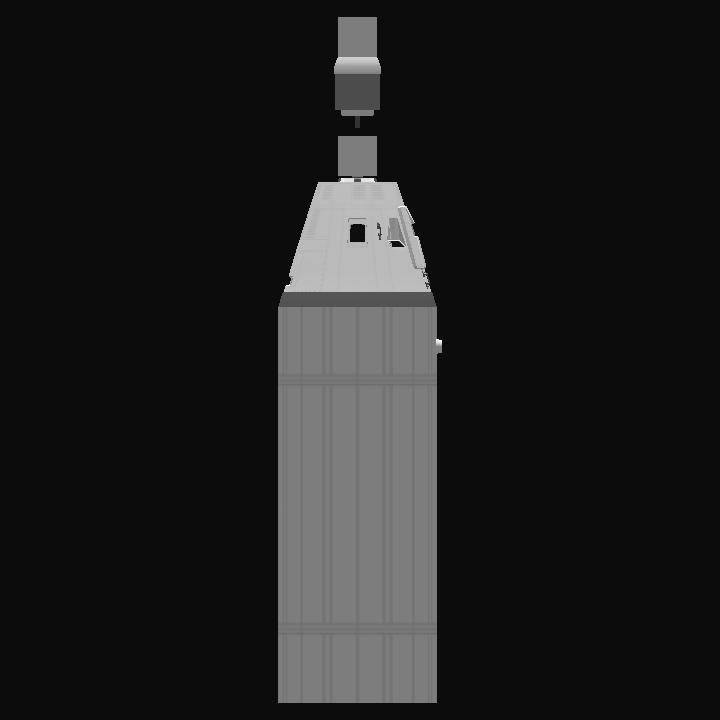
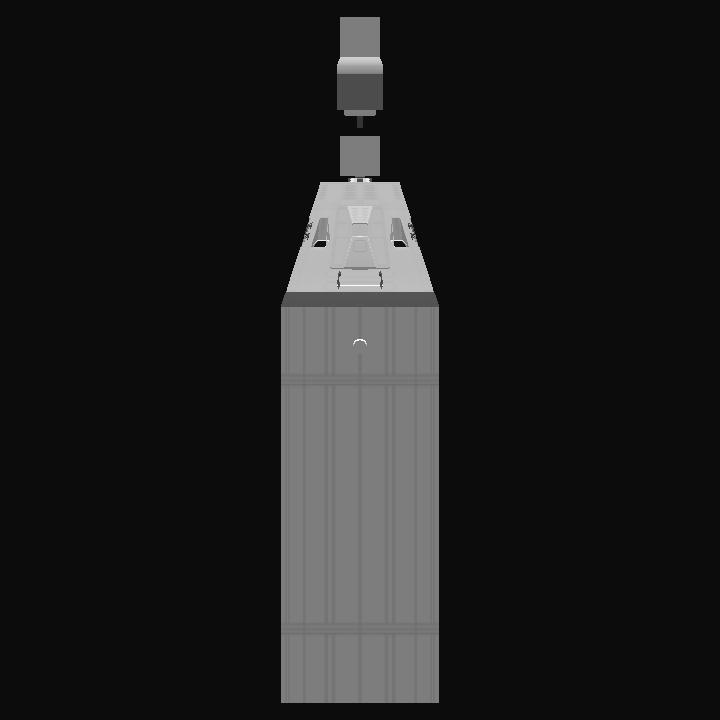
@Asqr15 - ok, i got it now - i remember making a retractable arm that had two 90 deg rotators, and one 180 deg rotator(for the straight section) and i had to try a bunch of different speed combinations to get them to stop at close to the same time - great idea using the electric motor for values - i assumed a rotator set to 180 deg would take twice as long as the 90 deg rotators, but setting them to 10% and 20% didnt work right, and this explains it - nice job!
but, no idea why the speed doesnt change in linear fashion, when its by %...seems like it should